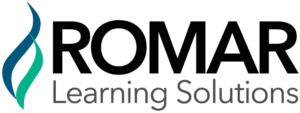
As an MSL, you have dedicated your career to healthcare. When you were in graduate school, you probably focused on the science or patient care aspects of healthcare with little training in business. However, after joining the pharma or biotech industry as an MSL, you are now tasked with understanding the business aspects of healthcare and integrating them into your role.
Typically, the MSL role focuses on sharing valuable study data and product information, handling questions from healthcare providers or opinion leaders, developing speakers, and setting up clinical trials. Also, many MSLs are now supporting commercial teams in terms of training and account management. In the current complex account management approach, MSLs are often account team members.
Basic Business Acumen
At a foundational level, good business acumen involves understanding the business factors that influence what an account, healthcare institution, or provider does and how they do it. Typically, MSLs manage medical topics and issues, but opinion leaders or healthcare providers also can be significantly affected by business issues. There are three business issues every MSL should understand in an account:
Provider reimbursement
How HCPs are reimbursed for their services is a complex web in today’s healthcare system. Products might require prior authorization or can only be ordered from a specialty pharmacy. While as an MSL you typically don’t deal with these issues, you should know which plans your opinion leaders belong to, how their referral systems work, and how your organization’s products are reimbursed and obtained. These factors may influence the questions they ask you and how they work with you.
Account product status
Your organization’s product has a formulary status and/or reimbursement tier it belongs to within your institutions or accounts. You should know that status and understand the impact it has. Again, you probably don’t get involved with formulary status issues, but you may be called upon to support an HCP advocate in the formulary approval process.
Integrated delivery network (IDN) structure
Most, if not all, of the opinion leaders you support are part of an IDN, and you should understand its structure, who manages it, and other key thought leaders within the network. IDNs are infamous for creating bureaucracy, and you need to understand that bureaucracy at a basic level.
Business Acumen Skills
As an MSL, you can practice good business acumen by:
Collaborating
The current healthcare environment requires that you collaborate with your organization’s colleagues—often! Twenty years ago, an MSL could work in isolation, but that’s no longer the case. You should communicate frequently with your MSL peers and colleagues in the commercial organization. Approaching your role as a team member will increase your success rate significantly.
Setting goals
Any good business establishes a set of goals it needs to achieve to be successful. This also is true of your role. Setting goals for what you hope to accomplish with your opinion leaders ensures you have a target you need to accomplish to help them in the treatment of their patients.
Understanding the marketplace
Knowing what is happening within a healthcare market can help you stay current on key information your opinion leaders may ask about. The business side of healthcare increasingly affects opinion leaders, so you need to understand what is driving their market and how it can affect them.
Crunching the numbers
Your organization may provide analytics about what is happening in your assigned area. The better you understand that data and apply it in your assignment, the more effective you will be.
Summary
Being an MSL in today’s complex healthcare market requires a new approach, one that integrates medical science and business. Reimbursement issues, product status, and the organization structure and processes all affect opinion leaders. As an MSL, you need to know these things and be well versed in what is going on within the institutions or accounts you support. By collaborating with your colleagues, setting goals, and developing a deep understanding of the market you work in, you can more effectively support your opinion leaders.




